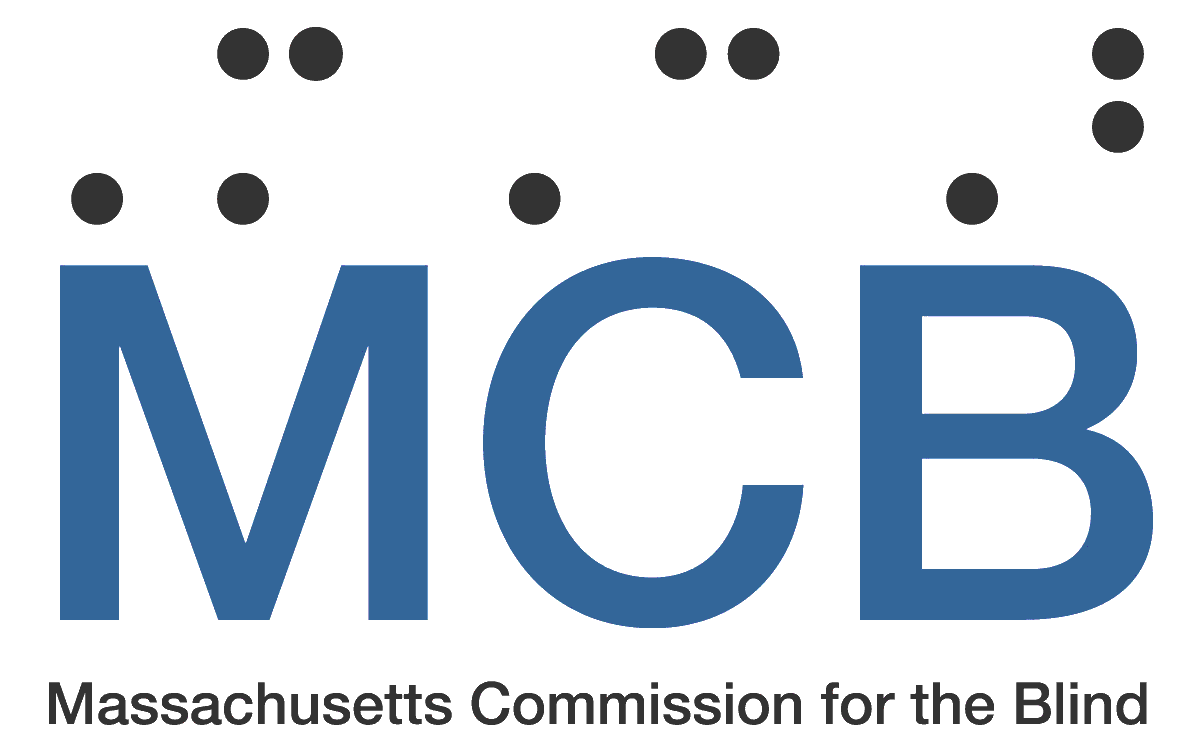- Massachusetts Commission for the Blind

By Owen Devlin
Q&A with Bill Hersh, MCB Adaptive Technology Specialist & Certified Low Vision Therapist
Bill Hersh currently works at the Massachusetts Commission for the Blind as an Adaptive Technology Specialist and Certified Low Vision Therapist. In these roles, Hersh works closely with individuals in order to assess their functional vision, and helps them select tools that redress barriers to educational, career, and independent living objectives. He currently holds a Master degree in Math, Science, and Instructional Technology from the University of Massachusetts Amherst as well as a Master of Science in Vision Rehabilitation from the Pennsylvania College of Optometry (SALUS University).
1. Can you tell me a little more about yourself?
I was born in New York City, and moved to Massachusetts in 1978 to study Law at Western New England College. I didn’t enjoy this, so I ultimately ended up at UMass Amherst studying Computer Science. I received my Master in Math, Science, and Instructional Technology from UMass, and completed undergraduate major requirements for the Bachelor degree in Biology from UMass at the same time.
Personally, I feel I work well with both individuals and technology, which is why I am well-suited for the Human Services position I work in. I am sensitive to people’s needs and emotions, and I am literate in technology. I can also interpret messages between the technician and the individual to make them easier to understand. I have found fulfillment here at MCB because I am able to utilize two skill sets that I greatly enjoy.
2. What is your current position at MCB?
Currently, I work as an Assistive Technology Specialist, and a Certified Low Vision Therapist at the Mass. Commission for the Blind. As an Assistive Technology Specialist, I work with individuals who are visually impaired in order to provide them with the appropriate types of assistive technology (e.g. high-tech Braille devices, computers, and various types of software) based upon their specific needs. As a Certified Low Vision Therapist, I work with individuals in order to evaluate their functional vision so that I can provide them with the appropriate tools and strategies (e.g. magnifiers, lighting, eccentric viewing skills). These two skill sets are very well-suited for the job that I do because they allow me to get a big picture, pull the camera back 30,000 feet, and help an individual accomplish their goals and achieve self-actualization.
3. When working with an individual, how does the evaluation process work?
Each evaluation starts out with a task analysis. We, at MCB, are very purpose-driven in what we do, and I think that sets us apart from a clinical setting. In a clinical setting, the focus is to examine the eye and the eye tissues, as opposed to a rehab setting where our approach is holistic, centered around the individual not the disability.
Our first step in the evaluation process is to identify the specific goal the individual is looking to accomplish. Second, we work to identify the barriers the individual might encounter when trying to complete their goal. Third, we work to find, and provide the individual with suitable assistive technology that could help to address these barriers. Lastly, we follow-up with the individual to find out whether or not they have successfully achieved their goal. If they have, we move on to the next client. If they have not, we go back to square one to find a different solution. For instance, if I am working with someone who has Macular Degeneration, and wants to read print, the objectives would include the following: to assess their acuity and the extent of the central scotoma, determine if eccentric viewing is beneficial and if so to teach the person how to view eccentrically (i.e. their ability to use their peripheral vision to complete near, midrange, or distance tasks to provide tools that enable them to complete tasks they are struggling to complete by providing magnification and increased contrast for example..
4. Where did you work before MCB?
First, I taught Biology and Computer Science for seven years in Springfield, MA for grades six through twelve. After that, I served as Director for Springfield Community College Project A.C.C.E.S.S.. In this role, I directed a grant for Assistive Technology through the Department of Education. Through this, I developed some connections with MCB’s region 1 director and VR supervisor, which is ultimately how I landed in my current role. Originally, I started out as part-time contractor, and later became a full-time regular employee.
5. Are you currently working remotely from home? Are you back in the office? If working remotely, have you experienced any challenges in your job?
Currently, I am doing both. When working remotely, I am performing evaluations, training sessions, assessments, and I am experimenting with hardware and software. When working remotely, I am faced with a number of different challenges, particularly when performing evaluations. Successful remote evaluations require the individual being evaluated to have access to a stable Wi-Fi connection, to have some technical skills or to have a parent present who has some technical skills in order to facilitate the meeting. There are other attributes of remote evaluations that are essential and so I have prepared a “Remote Evaluation Guide” which I send to consumers prior to the evaluation. This helps them prepare for the virtual visit.
My job is an art, but also a science. It is science-based in the sense that I work with technology, look at measurements, and rely on data-driven information. The art component of my job is in the strategies I teach, the intuition I use when working with an individual to determine whether or not they are comfortable with a specific solution, and to make observations as to the way in which they are positioning their eyes, how close they are holding their material, whether or not they tilt their head toward the light, whether or not they have full use of their hands, their posture, among other important details. Unfortunately, small details like this are very difficult to perceive when looking through a square image on a computer screen.
There are many draw-backs to working remotely with individuals. For example, it is difficult to assess the emotional aspect of an individual’s response to their vision loss. And, there are some observations that are especially difficult to make. For example, observing convergence, eye deviation, visual skills, and other factors that require close observation. Other factors that are note specifically related to vision but that make virtual visits difficult are things such as using proper etiquette, like waiting until the other individual has finished speaking, and recognizing the pauses that are present within the conversation, can be very difficult to teach certain individuals.
6. Can you tell us about some highlights in your career?
I think the highlights in my career really revolve around the individuals I work with, specifically my colleagues and clients. The office I work in, Region One, has undergone several transitions throughout my time at MCB. However, each colleague I have worked with has been wonderfully supportive. In addition, I have become close friends with many of the older clients I have worked with, and I have helped some of my older clients fulfill their life dreams. For example, I helped one client finish a book they were writing, and I helped another write music, produce a CD, and send it back to their home in Portugal. I also enjoy the technology aspect of my job. I love getting my hands on the latest tools in technology, and I enjoy taking the devices home to play with.
7. Do you have any advice for individuals who are adjusting to life with vision loss?
If I could offer any advice in this area, I would specifically direct it toward people who work alongside others with vision loss. It is important to listen, validate, and offer support to these individuals in times of need.
